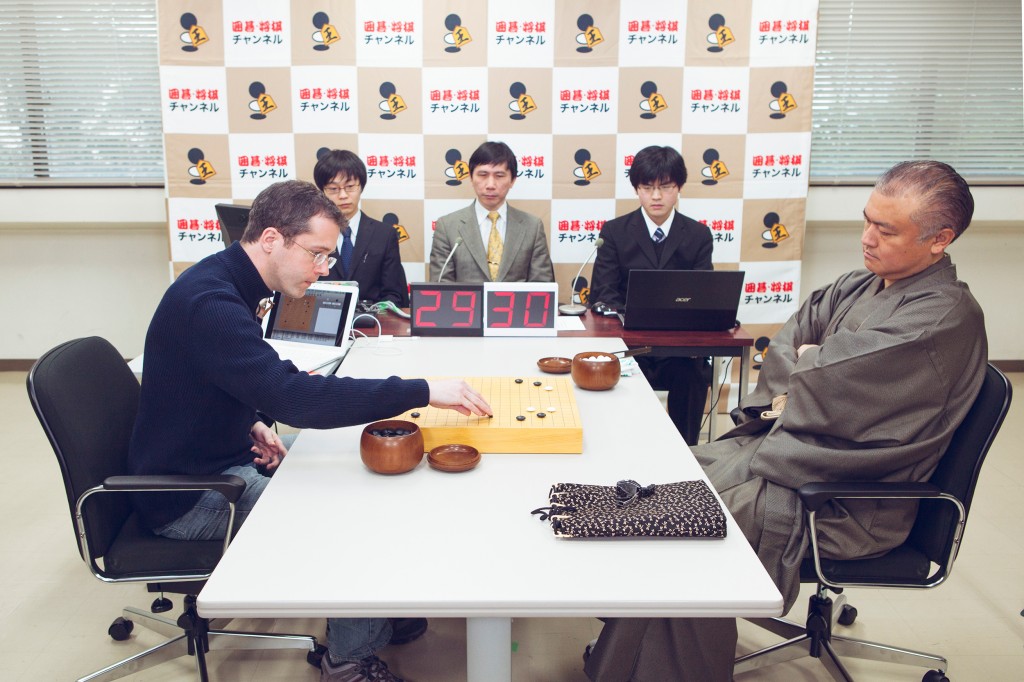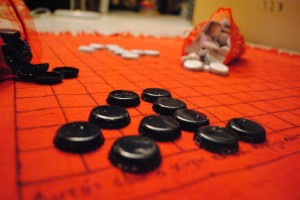Cultural Aspects of Today, CATs for short, is my new way to present and discuss what I read, play, watch, listen to and generally enjoy these days. We are now in the era of Postmodernism according to which, very roughly, anything goes. At the same time the word “culture” can be used to describe a very broad selection of productive human activity just as well as the word “art”: cinema, video games, books, paintings, music, local traditions, Pop Art, High Culture… What falls under which category is not as apparent as it once may have been and the older norms, along with this fact, have all merged into Postmodernism, the movement of blending seams… I’m going to use this to present many different aspects of life, art (controversially or not), knowledge, products and ideas as parts of the Cultural Aspects of Today.
~
Ratatou-E
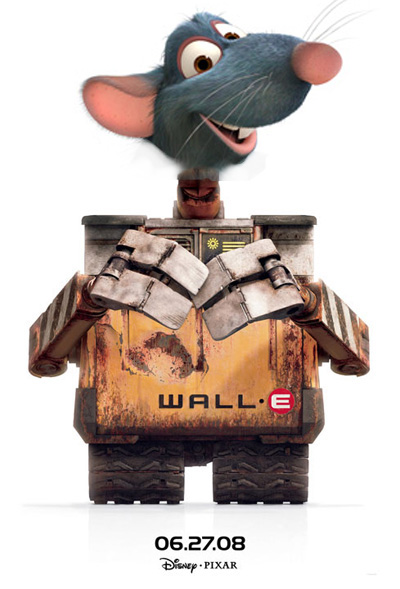
I watched Wall-E and Ratatouille 2 weeks apart. I first saw Wall-E, which was already hyped by pretty much everybody on IMDB along with a super user rating and a super review from Athinorama (an impressive 4 stars if I remember correctly). I could not help but be intrigued by the futuristic looks and alleged environmentalistic themes. My impressions?
The postapocalyptic backdrop for the first half of the movie was just spectacular. All the different items that Wall-E (the little robot) collects that represent parts of humanity’s cultural heritage were both emotionally powerful and conceptually brilliant. The feeling of solitude this half of the film gives off is noteworthy. The mega-corporation depicted in the movie which is the evolution of the capitalist tendencies of today is wonderfully and poetically pepresented, both by its name and its significance. BNL, Buy N Large.
The second half is not as good. The very subtle comedy of the first half is compromised and the film reverts to a style more similar to other Pixar films. The whole veil of mystery over the supposed future of humanity is lifted and, despite the unexpected plot twist (two words: steering wheel), the ending is very disappointing, destroying any kind of environmentalist tone the rest of the film had. (SPOILERS! READ FURTHER AT OWN RISK: Very “it’s-ok-guys, pollute-as-much-as-you-want-it’s-going-to-be-ok-even-if-it-takes-us-700-years!” Didn’t like that part… Overall, I think it wasn’t as good as hyped although it was enjoyable and had very sweet moments. Wall-E and EVA are perhaps the best robotic couple in the history of animation!
Ratatouille on the other hand… I had heard it was very good from different people but it managed to surpass my already high expectations. It was very funny and the characters were brilliant. Me and Alexandra especially liked the restaurant critic, Anton Ego (word goes around the internet that this guy was actually homosexual. I find that strange but whatever) I personally also liked Emile, Remy’s brother. I felt Ratatouille was very down to earth and appreciative to love for the simple things in life. Made me want to cook and eat the best meal in the world! The ending was very very satisfying and it left us with a very cheery feeling.
I cannot compare the two films. I don’t have the skills necessary and it would be pointless anyway as they are different films with a different goal and a different touch. What I can say though is that Wall-E promised a lot and underdelivered in a memorable and affectionate way while Ratatouille overdelivered in every possible way. Both films remain however as good examples to why Pixar is the leading mainstream 3D animation studio; they still haven’t made a film that I didn’t enjoy.
PS: Pixar are also well known for their shorts and we all love them. “Presto”, “Your Friend The Rat”, “Lifted” are all great recent examples, I recommend you watch them if you haven’t along with the feature films.
Braid/Castle Crashers
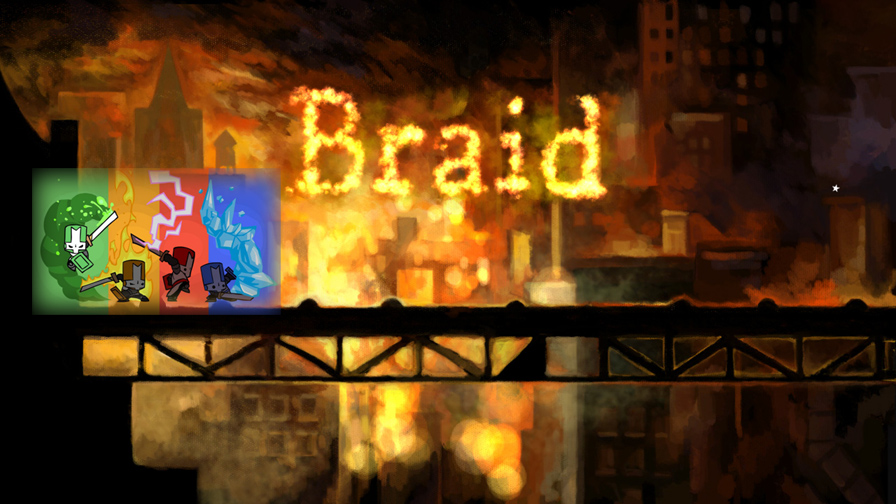
Braid and Castle Crashers were the summer’s greatest hits for the now-favourite Xbox Live Arcade service. Two distinct games with different gameplay styles and approaches that however have three things in common: 1) They are 2D. 2) They developed a cult fanbase even before they were released. High levels of anticipation then. 3) They are pricey games indeed.
I had the luck to be able to buy them both close to a month ago. First, Braid. Braid was a novel idea based on the platformer teaching of ye olde. That is, it was like playing a Mario game with some new mechanics. These mechanics took the “platformer” out of its name and turned it into something that’s closer to “puzzle”. Tim, the hero, must collect jigsaw pieces through various levels controlling time and various items and behaviours that manipulate time on their own as well in order to save the “princess”. The result is some very difficult puzzles but a genuine sense of accomplishment. What made the game stand out even more was the very open-to-debate story. What the “princess” is in the end is a very good question, but I won’t spoil it for you! I can’t not mention the jaw-dropping ending, one of the most fitting endings Jonathan Blow could think of! Oh yes, Jonathan Blow is the designer of this game. People call Braid “indie”, cause apart from the game’s art, Blow made the rest of the game all on his own. What is less well known is that it cost him approximately $180,000, production values quite higher than what people would call “indie”. Still, Braid has its own distinct feel and it was well worth the 1200MS Points if only to get to experience such a, how should I put it, classy and rounded game experience.
Castle Crashers is a lot different. Developed by The Behemoth (by Newgrounds.com creator Tom Fulp and flash artist Dan Paladin) and a lot more of course hit the gaming scene as a tribute to old 16-bit beat-em-ups set in fantasty settings, complete with knights, dragons, princesses, magic etc. I hear it’s very similar to Golden Axe but I haven’t personally played the game. Castle Crashers has excellent 2-D graphics (which just like the developer’s previous game, Alien Hominid, want to give off the Flash game feeling), cheery and sometimes hilarious humour and some addictive hack & slash gameplay, especially multiplayer. I’ve lost count of just how many people have come to my place, played a bit of Castle Crashers and then played the night away (with me or without me…) Not a huge game by any standards but I can see how me and 3 more friends will sometime come back to live the complete 4-player experience.
Go
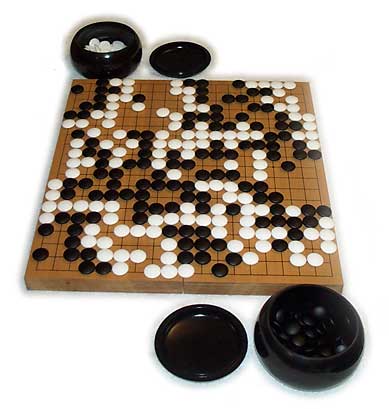
Just a few days ago me and Alex had the chance to at last play Go together. It was just as good a game as I remembered it, having only played it once before. Thank you again Cies for introducing me to a game that takes one go (pun intended) to learn and two lifetimes to master.
Go is apparently the oldest known board game, much older than chess or even backgammon. Its roots are oriental and more specifically Chinese. From there it has spread over the centuries to Japan and other asian countries where it’s now possibly the most widespread game, played in tournaments, special clubs and between friends. Oddly, it’s not that well known in Europe, especially not in Greece. I’ve only seen it twice and under totally random circumstances. Since Chess is king over here I doubt we’ll be seeing people play it more but you never know, chinese expansion could also mean cultural expansion? Hmm…
The board is empty once players start off. The players take turns placing one stone on the intersections of the board, forming groups. If the other player surrounds the entire group with her own stones then the surrounded stones are captured and removed from the game. And… that’s basically it. Every other rule derives from this simple principle. The winner is the player who controls the largest part of the board with her stones at the end of the game, point which is declared by both players passing consecutively.
These simple rules define a game of strategy, deception, intrigue, loss, amazement, fulfilment and active rivalry between the players. Never before have I seen a game so noble: one rule suggests that players say “atari” when a move of theirs will capture enemy stones in the next move so that they can react accordingly. Thus the point automatically becomes cornering the opponent and making her not be able to do anything to save herself as opposed to taking advantage of a miscalculation or a careless move which is a norm in chess. Indeed, never before have I seen a game so fair: two players of extremely different skill can fruitfully play together by having a handicap for the stronger player: the weaker one starts off with as many stones already on the board as the difference of skill indicates.
Alexandra has beat me every time we’ve played together save 2. I will strive to get better and one day, as the mighty yet harmonious Go spirit commands, I just might achieve the perfect balance of spirit and wit, become one with the universe… *floats*
Deception Point, by Dan Brown
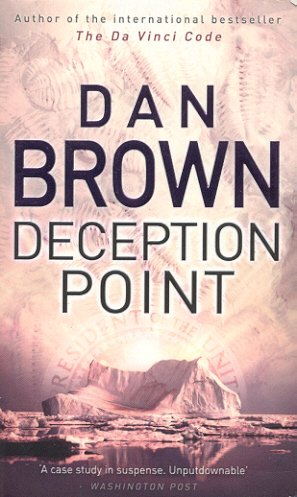
I first got to know of Dan Brown through his most famous work, that is none other than “The Da Vinci Code”. It’s his latest work out of a total of 4 books he has written within the past 12 or so years. I read Angels and Demons, The Da Vinci Code and Digital Fortress all roughly 2 years ago and Deception Point just now and I’m genuinely impressed by his consistency in showing the world how skillful he is in grabbing his readers by the balls. However, The Da Vinci Code is surely Brown’s most overestimated work, another proof of why the best-seller isn’t always the best-in-general (the rest of his books it turn became best-sellers after the success of The Da Vinci Code). Angels and Demons, which was very similar in its religious and “secret cults” themes to the former, I enjoyed much more. “Deception Point” has a plotline that has more to do with politics, scandals, secret government agencies, NASA, a huge conpiracy… A lot more like Digital Fortress.
This book didn’t just have twists. Its twists were the evolution of the twists of the original twists that I thought were good twists. Yes, it was twisty. The characters felt alive if a bit contived (like the nerd astrophysicist or the always sexy front couple), the action never stopped, the good guys turned bad and then good again within a matter of pages (before they turn out bad at the end of the b… oh, another twist. They’re good), the little pieces of actual real-world scientific aspects, like the fossils and meteorite and the futuristic gadgets (always part of Brown’s stories) also gave it a nice tw… edge. Yes, I liked this book. Seemingly complex but ultimately quite easy to grasp and FUN! You just can’t help but smile when the bad guys fire bullets made of ice. Recommended.
PS: I regret to say I’ve read all of the books mentioned above in greek. They may be even better in english.

